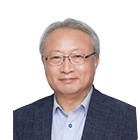Video
Publications
Issue Briefs
Publications | Issue Briefs
Assessment of North Korea’s Regional Development Policy
Han Ki-bum
3,2282025.01.10
North Korea, under Kim Jong Un’s “20×10 Regional Development Policy,” aims to address regional shortages of essential goods by constructing industry factories in 20 cities and counties annually over the next decade. This initiative seeks to showcase progress ahead of the Workers’ Party’s 80th anniversary in 2025 and mitigate discontent from Pyongyang-centric policies. While it may temporarily ease regional discontent, its success depends on continuous central government support. If it falters, it could worsen dissatisfaction and weaken Kim Jong Un’s authority. Despite this development push, North Korea’s commitment to nuclear development remains unchanged. The regional development initiative is viewed as a short-term measure to alleviate internal grievances and bolster internal control amid negotiations with the United States and potential provocations against South Korea. This underscores the need for South Korea to brace itself for diplomatic and security hurdles.
This article is an English Summary of Asan Issue Brief (2024-14).
(‘북한의 ‘지방공업 발전 정책’ 평가’)

Han Ki-bum
Adjunct Senior Fellow
Dr. Han Ki-bum worked as a North Korea analyst at the National Intelligence Service over 20 years before retiring in February 2009 as the third deputy director (in charge of North Korea affairs). After retiring from the service, he worked as a visiting professor at Korea University and a visiting researcher at the Korea Institute for National Unification, And then served as the first deputy director of the NIS (in charge of North Korea and overseas affairs) again from April 2013 ~ February 2016. Since then, he has been working as a endowed Research Fellow at the Institute for National Unification, then as a endowed Research Fellow at the Institute for North Korean Studies, and as a Visiting Research Fellow at the Asan Institute for Policy Studies from January 2024.
view more


